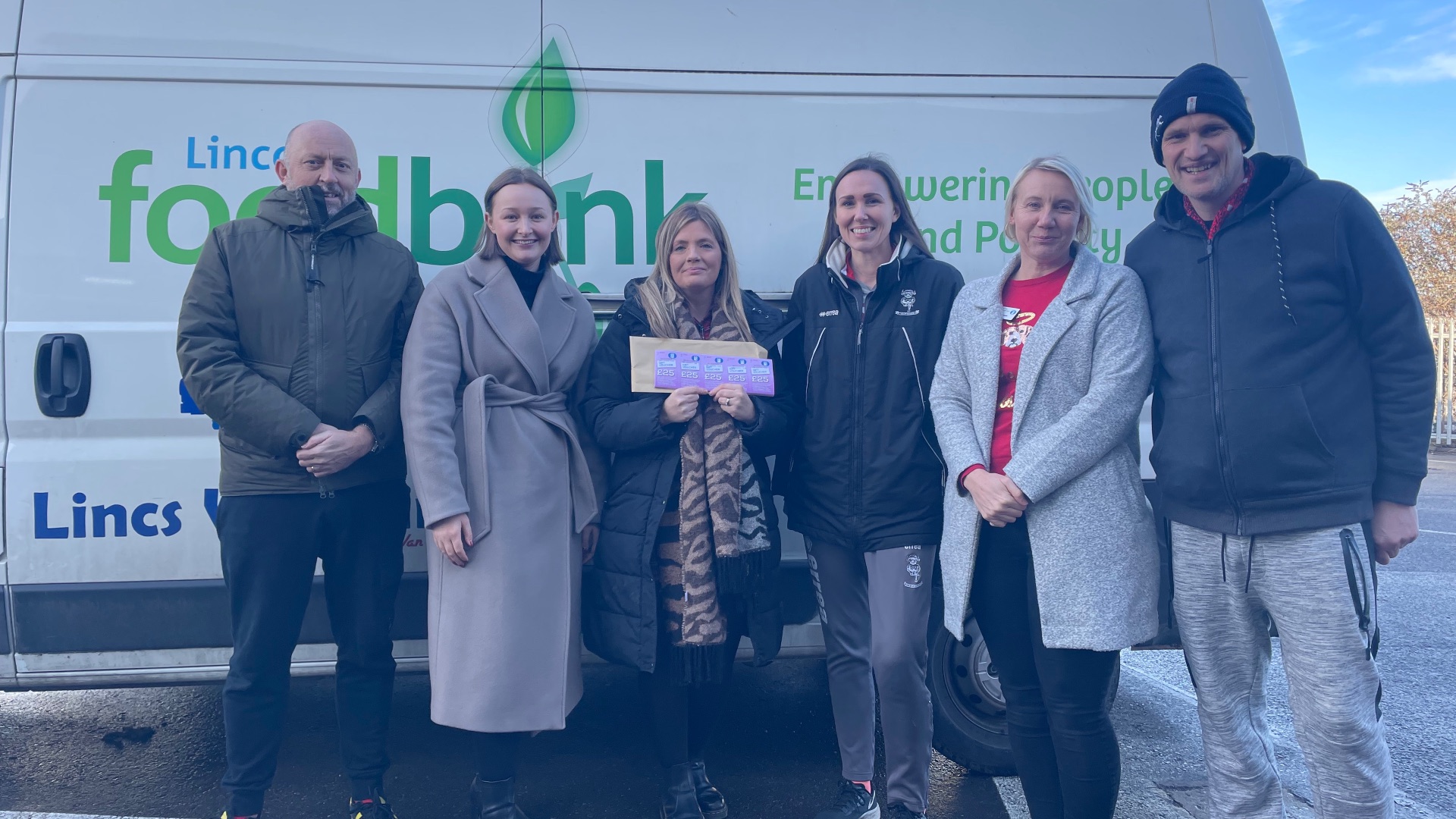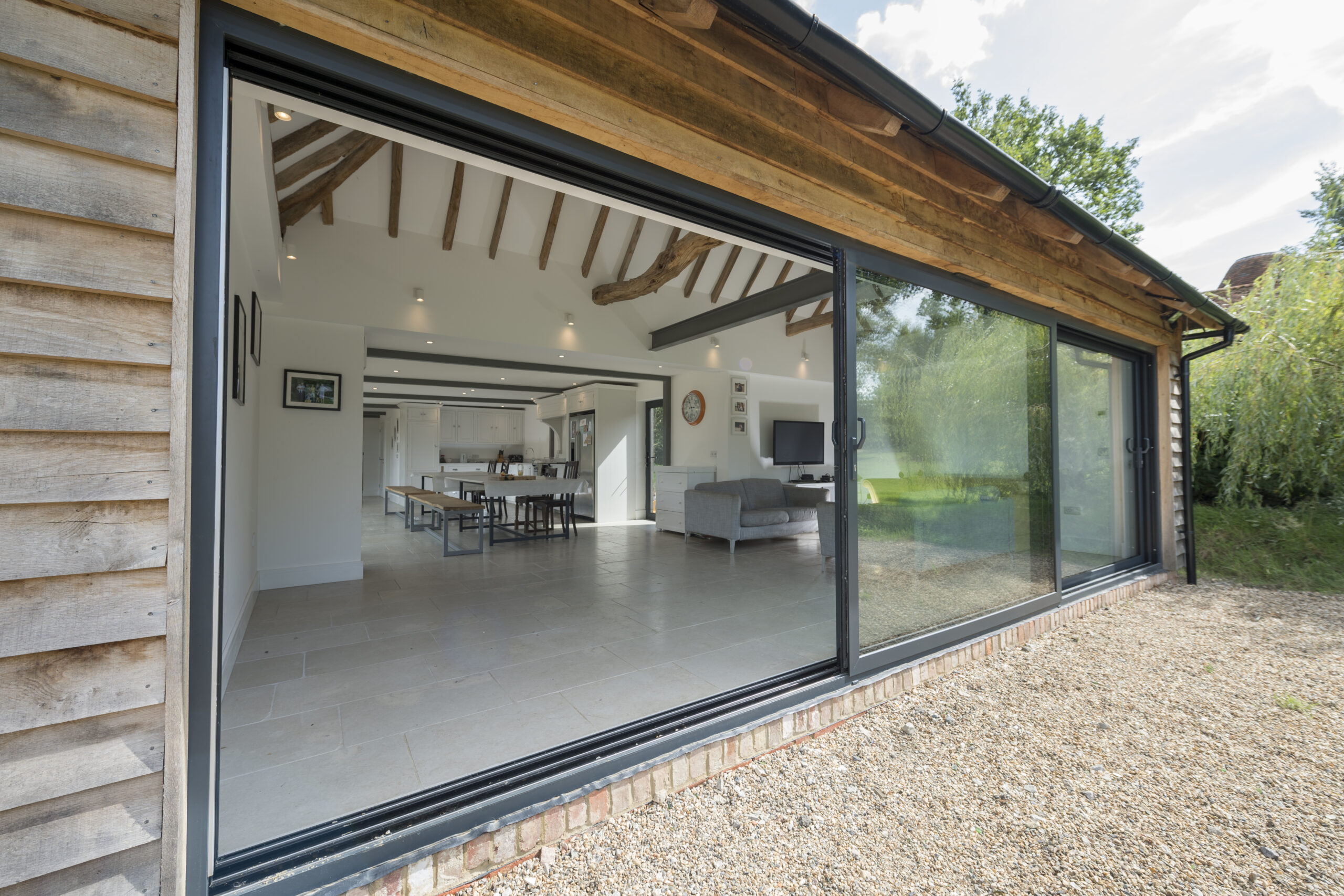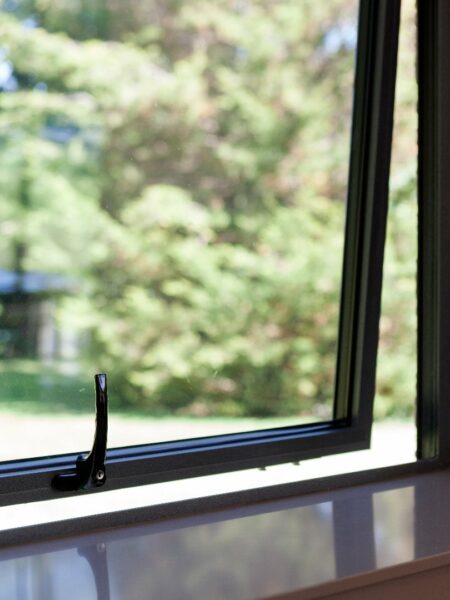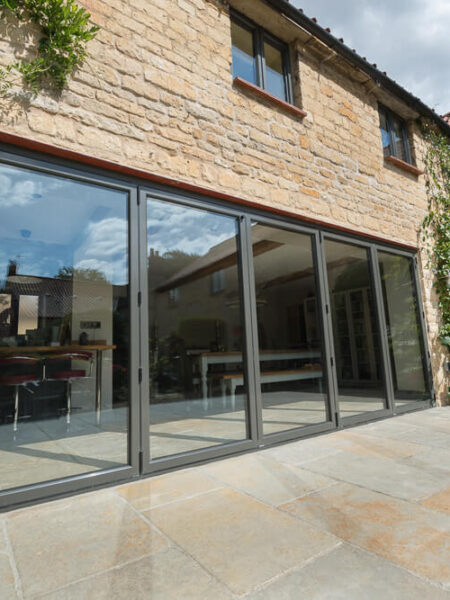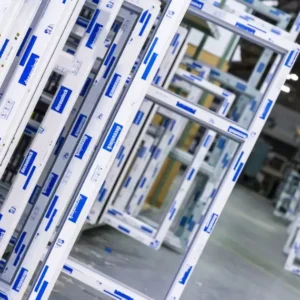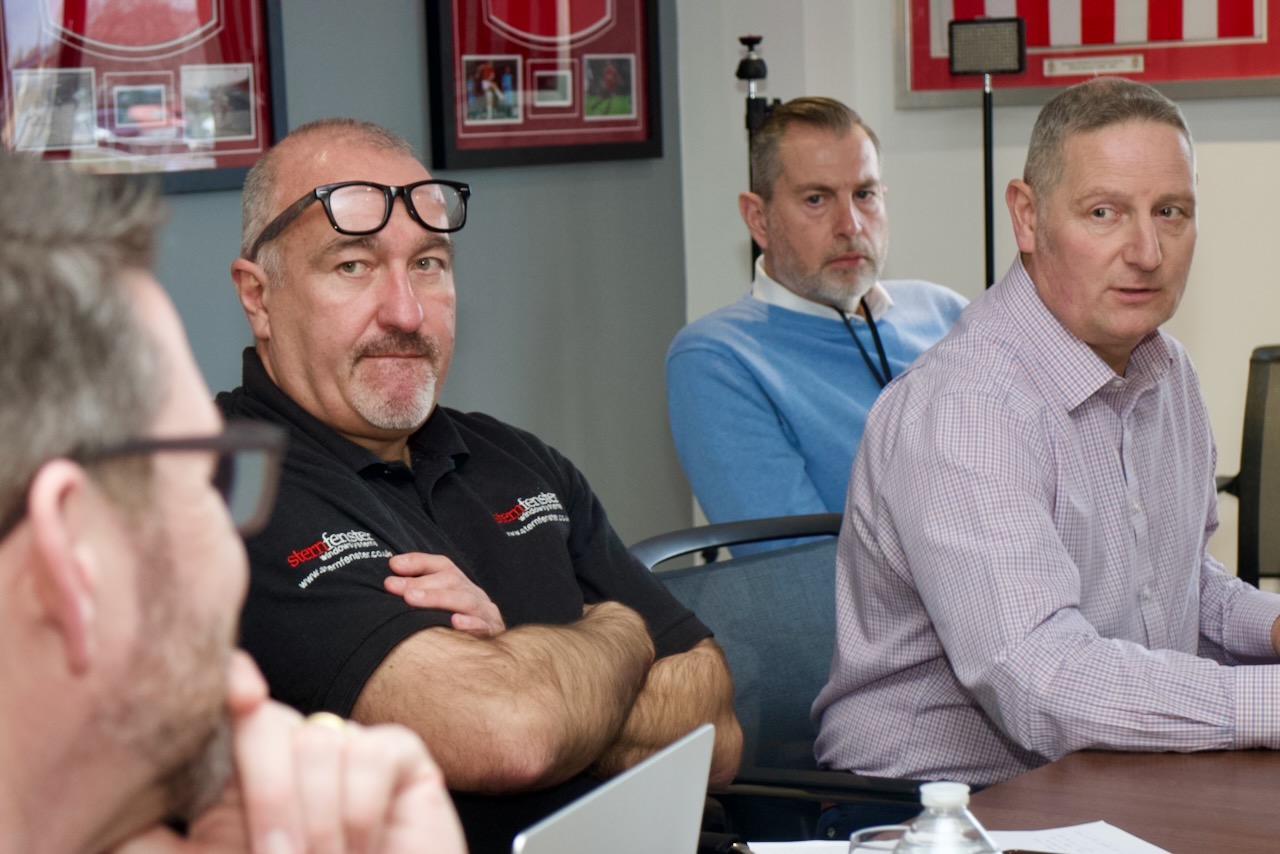
Sternfenster Roundtable On Sustainability
Industry debate on how to reduce impact on the environment

We hosted a roundtable in January to discuss the importance of manufacturing windows and doors sustainably, and to share best practice when it comes to measuring and reducing the industry’s impact on the environment.
The aim of the event was to collectively develop strategies that help reduce carbon emissions and increase recycling, while maximising the commercial opportunities from doing so.
We invited its key suppliers to explore how each business is taking steps to reduce their carbon footprint, and how this data can be passed through the supply chain to retail companies.
Representatives from Deceuninck, Smart Systems, Saint-Gobain Glass, and Edgetech shared their sustainability journey, and vowed to work together to place greater importance on the environment and communicate this to the end user.
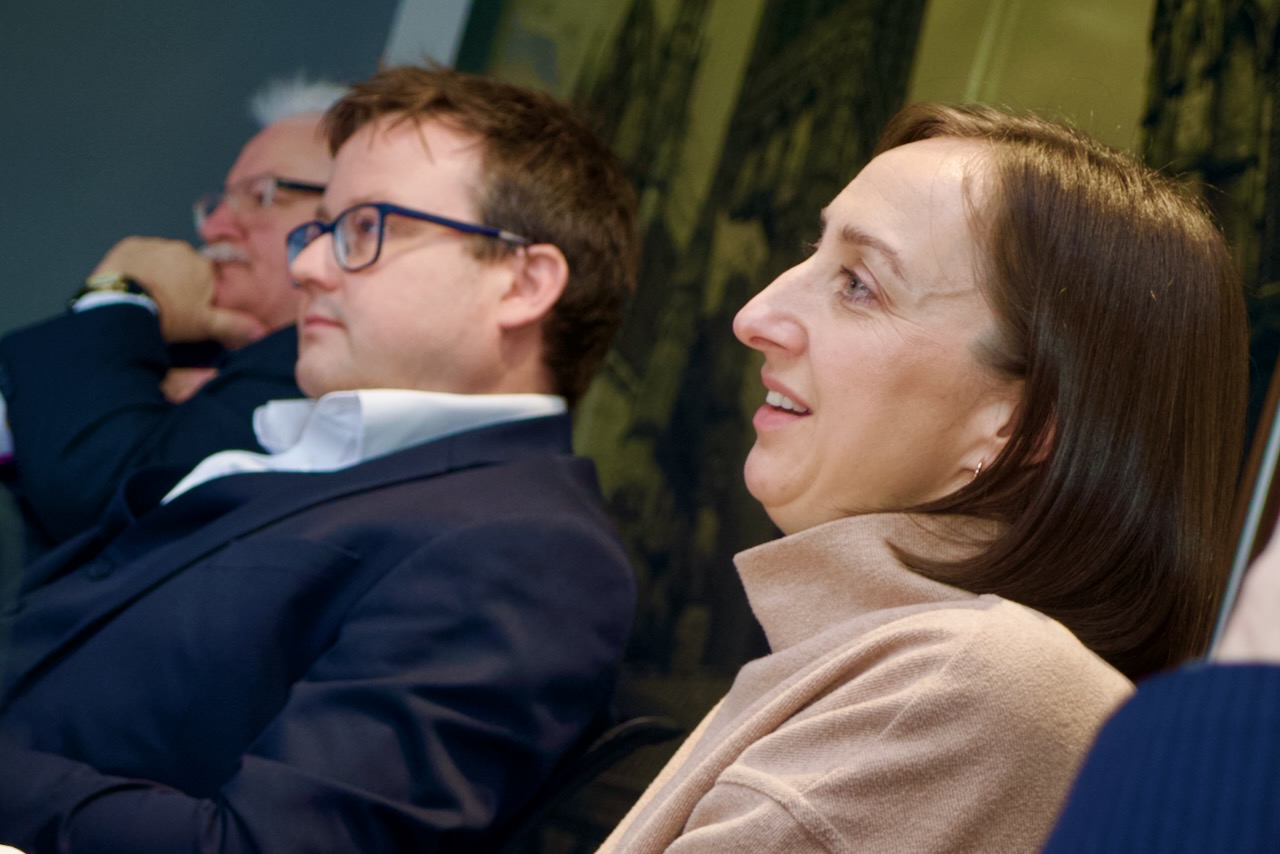
“More of our consumers are asking us for information on how our products are recyclable, and how we’re reducing our carbon footprint,” explained our managing director Mike Parczuk.
“We had an engaging roundtable debate to discuss this, and how each of us is making our products as recyclable as possible. I’m pleased to say there were some really positive outcomes.”
Edgetech’s head of marketing Charlotte Hawkes explained how the company was currently benchmarking its impact on the environment, which was being driven by many factors, including from its own investors. But there was also an opportunity from a marketing perspective.
“With sustainability, we’ve got an awful lot to contribute, and by embracing it as an opportunity rather than pushing against it, we can really do the industry a favour by improving the reputation,” she said.
This communication hurdle was also highlighted by Saint-Gobain Glass’s regional sales manager Richard Green.
“I think one of the biggest challenges within the glass industry is educating and enabling our customers to be able to talk about the benefits and the appropriate energy efficient options,” he said.
And this approach requires the industry to present facts and figures in an informative manner, argued Deceuninck’s operations director Darren Woodcock.
“The biggest challenge is educating people, without a shadow of a doubt,” he said. “If you’re replacing your windows, you need to be sustainably thinking what’s happening with your old windows. Are they going to go back into the system? Are they going to be in the supply chain again? Is that circular economy known to the end user?”
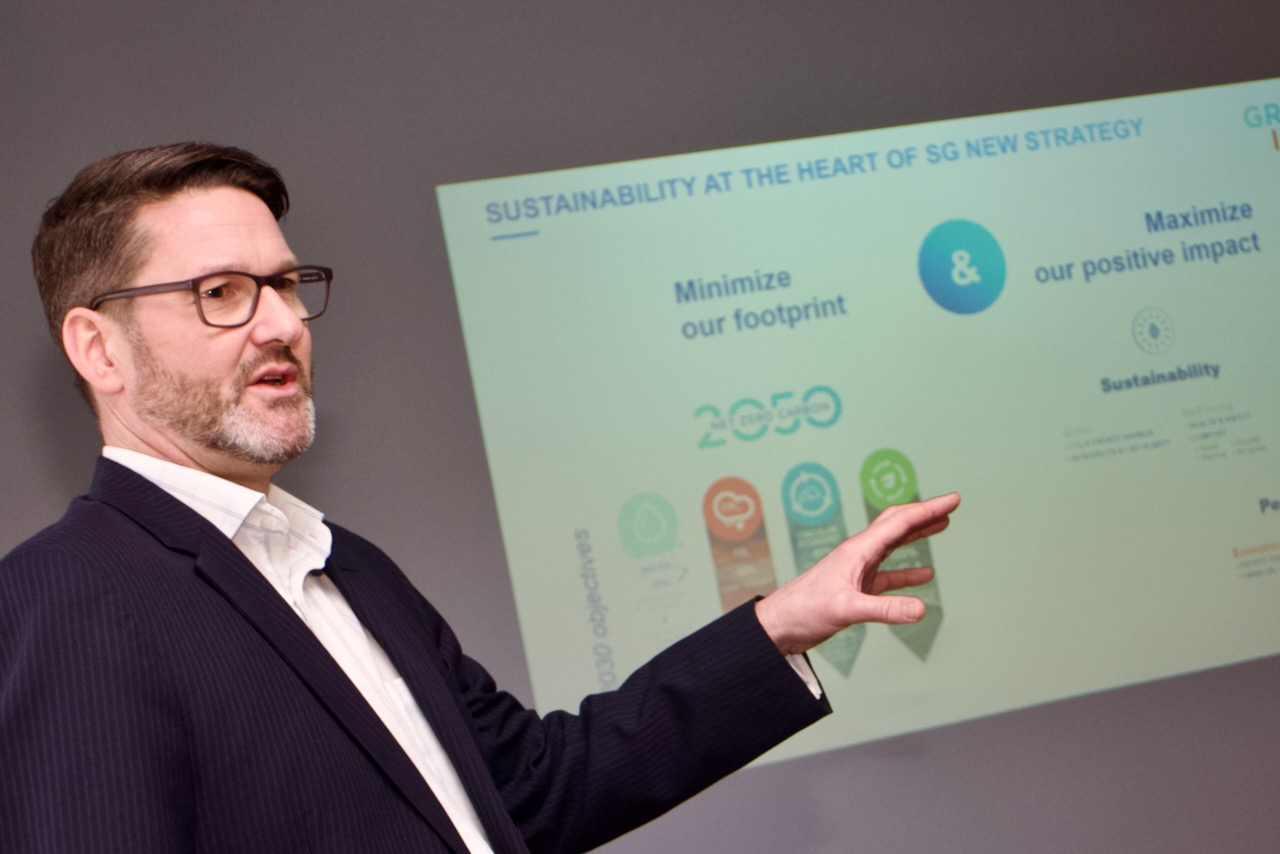
Smart Systems’ technical manager Anthony Murray said the hardest thing for companies developing a sustainability strategy is obtaining data, and gathering the key performance indicators, such as energy use, water consumption, and reliance on chemicals.
“But I’d also say the data is the opportunity,” he said. “Because if you analyse the data instead of just collecting the data, it shows you where you can improve your business to improve your efficiencies.”
“Having this well-informed view of your business, created thanks to your sustainability initiative, will bring many commercial benefits”, Saint-Gobain Glass’s market manager Jennifer Young said.
“I think our biggest opportunity is to really look at how we do things – from the manufacturing process, to product innovation, and how that product performs,” she added.
“And, ultimately, I think we’ve got a real opportunity here to make the world a better home for all of us.”
Our sales director Nathan Court said: “The roundtable event was a great success, and is just another step in our sustainability journey. I am encouraged where Sternfenster currently sits and I urge suppliers to start working more closely with each other and their supply chains to forge a more joined-up approach to sustainability.
“There’s some great information that we’re all going to share with our trade customers over the coming weeks and months. That way, they can confidently inform the end user about how sustainable our products are, and to improve the sustainability journey that we’re all on.”

